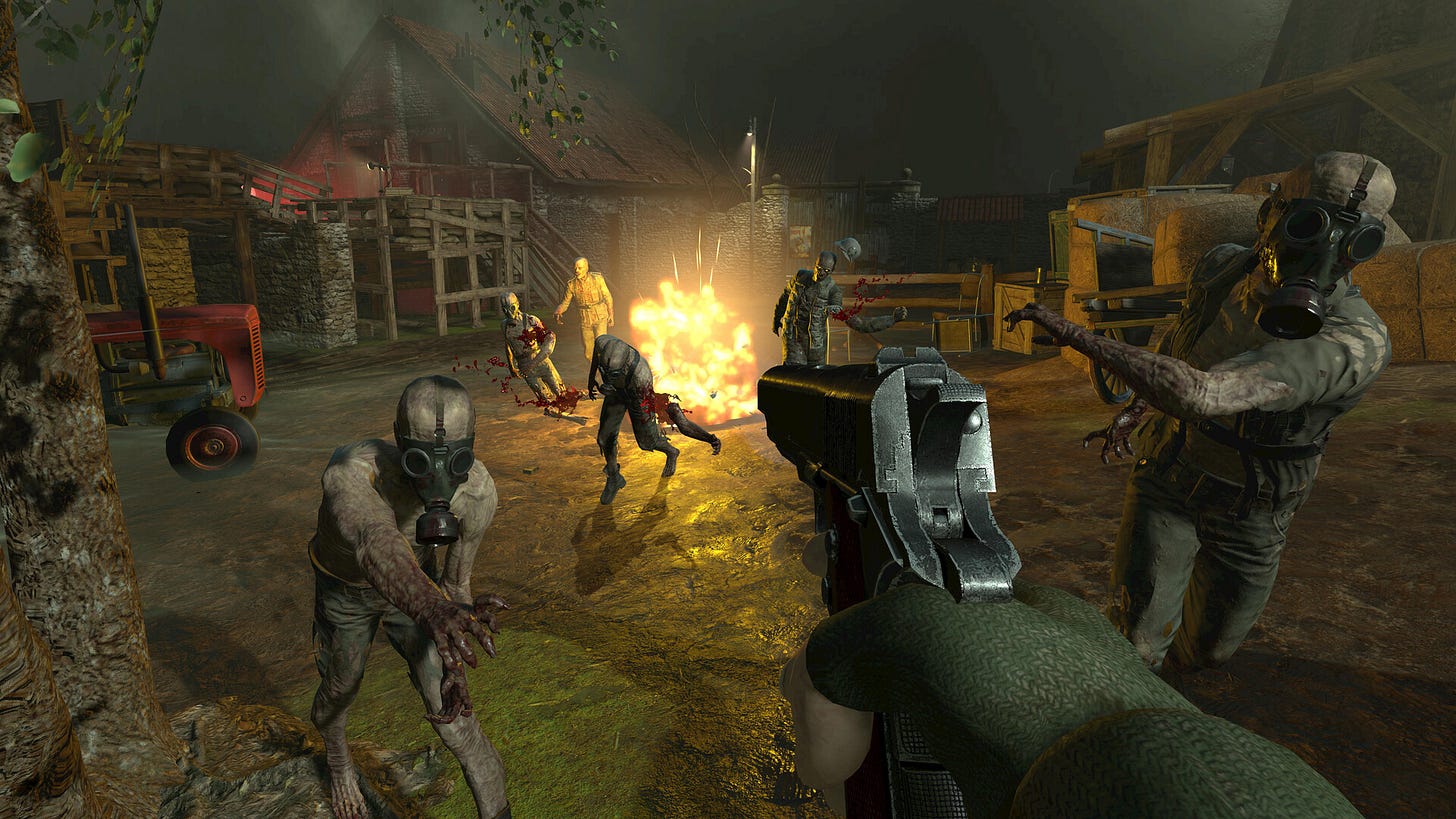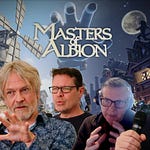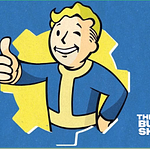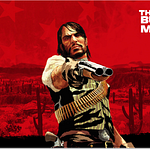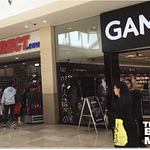Listen now on Apple, Spotify or YouTube
In This Edition
- The success of Atomfall
- How Rebellion green lights projects
- Would Jason Kingsley sell-up?
Welcome back to The Game Business! This week, we chat to Rebellion CEO Jason Kingsley following the success of Game Pass hit Atomfall, and discover why the firm avoids doing much (if any) market research.
Enjoy!
P.S. Don’t forget to secure your ticket to The Game Business Live in Los Angeles on June 9, featuring all sorts of big-name industry folks. Best of all? For you, dear reader, the tickets are free!
Rebellion like to do a little test. They take a screenshot from an upcoming game and challenge the team to name what it is.
"There are an awful lot of games that fail that test,” says Rebellion CEO Jason Kingsley. “You see yet another brightly colored science fiction shooter… could you guess what that is, or does it blend into every other shiny future science fiction game?
“Elder Scrolls: Oblivion, the recent remake, you can see from a screenshot that's Oblivion. Expedition 33, you can pretty much tell what that game is from a screenshot. So you have to have a little bit of difference. It doesn’t mean a game needs to be completely stylized or weird, but is there something that makes your game look a bit different than all the others?”
The reason we’re even talking about screenshots is because Rebellion has just launched its biggest ever game in Atomfall, which attracted 1.5 million players within days (with more than a little help from Game Pass on PC and Xbox). The UK studio tells us the game was immediately profitable, and they’re busy at work on DLC and even discussing potential sequels and spin-offs.
Atomfall is a post-apocalyptic action survival game, which might not sound particularly unique, except this one is set in an alternative history 1960s, and takes place in the Lake District in the North of England, which (for those who have never been) is one of the most beautiful places in the world.
“As a boss of a company, you should feel you have responsibility towards people that you employ.”
“I wanted to juxtapose the beautiful countryside with the apocalyptic weirdness,” Kingsley tells me. “I imagined walking down a beautiful landscape thinking this is lovely, and then seeing a crashed helicopter. And the sort of the juxtaposition of the two will make you go… ‘that’s really weird’, and slightly unsettle you.
“And I really like going into cities via railways, because when you look out of the window you see the sort of industrial hinterland that's not meant to be seen. You've got piles of things and you've got the backs of people's houses. I find that really interesting because it's not the facade, it's not designed to be looked at, and therefore it’s more honest.”
Who needs market research?
Atomfall is quintessentially British. The press release celebrating its success cited the amount of tea and pasties that had been consumed, and how many kills had been achieved with a cricket bat.
“I've always felt that the British culture is slightly underrepresented in games,” Kingsley says.
As a Brit who loves a cup of tea, a game of cricket and visits the Lake District every year, Atomfall was hugely appealing to me. But I am a very specific market to make a game for. What made Rebellion think such a thing would appeal more widely?
“We don't do much in the way of market research or try to analyze gameplay trends and jump on the back of them,” Kingsley says. “Partly because I just don't have the appetite to make creative decisions like that, and partly because Chris [Kingsley, CTO} and I set up Rebellion because we wanted to make games we wanted to play. We don't really follow trends if we can help it. What we try to do is come up with an idea that we think resonates. And when we talk about the idea, if everybody in the room sits forward and goes ‘that's interesting’, then that, generally speaking, translates to a successful game.”
“When we talk about an idea, if everybody in the room sits forward and goes ‘that's interesting’, then that, generally speaking, translates to a successful game.”
It sounds immensely risky, but Kingsley repeatedly stressed the importance of being cautious with budgets.
“I'm not saying we don't spend significant amounts of money. We do,” he says. “Our budgets are many millions of pounds and that's quite a sum of money. It pales into insignificance compared to the top end of games, but we're spending a load more than a lot of indie studios. We sit in… some people call it this comfortable middle ground and other people call it an uncomfortable middle ground. It seems to work for us though.”
Kingsley points to the number of developers laid off over the past two years as to why he is reluctant to increase budgets too much.
“Somebody can just be getting on with making good games and suddenly they lose their job because somebody external has decided to change the structure. That's horrible. If you are failing, then understandably, you know, you get the consequences of that. But if it's not your fault, that's harsh.”
He adds: “We’re quite protective of the success we've had. We don't gamble wildly on one roll of the dice. I want to be able to give people jobs as long as they want a job with me. I want to pay them well and I want them to feel stable, because I know we've got a lot of responsibility to people that work for us.
“The people that work for us are, broadly speaking, getting older, and starting to have families. And as a boss of a company, you should feel you have responsibility towards people that you employ.”
Rebellion for sale?
So how does Rebellion step-up beyond the mid-tier, AA level it currently inhabits? Kingsley clearly enjoys the freedom of independence, but he is open to working with others. In fact, last year the firm started working on a battle royale version of Sniper Elite with Tencent, but the project was quickly cancelled.
“That was a bit of a one-off,” Kingsley explains. “We don't do work-for-hire. But we were very keen to learn about how Tencent worked. And Tencent were very keen to learn how we worked. At the end of the day, we walked away because we felt the market had shifted entirely. We still have great relationships with them. It was one of those business opportunities that didn't get to the ultimate end that we were hoping for.”
Even so, Rebellion is not looking for a buyer, although Kingsley says they’re always up for being taken out for a fancy dinner.
“There might be an opportunity that comes along that we can go, ‘yeah, that makes sense’,” he says thoughtfully.
“But actually… there are a number of acquisitions at the moment that might be interesting for us. We're considering a number of options. We’re looking at intellectual property and more movie productions.
“Is anybody going to try and buy us? I don't know. We would not be easy to buy because it would have to be something more than money. It would have to feel like it was getting involved in a bigger, and better entity somehow.”
What comes next…
Rebellion isn’t just a games studio. It produces comic books, it has a movie production studio, and Kingsley is even publishing a fiction book later this year. The firm is talking to streamers about TV shows and movies (which, Kingsley adds, are nowhere near ready to be announced). And it’s even trying to grapple with the discoverability challenge, after acquiring YouTube talent management and marketing agency Blackshore in 2023.
Even in games it plays in a variety of sandboxes. The firm is just about to release its next VR title in Zombie Army VR, which is a market the company has found fruitful.
“[VR] things sell quite well, but it's a bit under the radar,” Kingsley says. “It’s not as big as the mainstream, but you look at the numbers and you go… ‘that's actually really good. Why are we not doing more of these?’”
“Is anybody going to try and buy us? I don't know. We would not be easy to buy because it would have to be something more than money”
With its more traditional games, Kingsley says that Rebellion is moving away from legacy hardware, and are instead focusing on existing platforms and potential future devices. The older formats, he says, are no-longer viable. But he is particularly interested in the rise of the handheld format.
“It’s weird because also there's a rise in the enormous screen as well,” he observes. “It’s like we've got these two extremes. Nobody is playing on a mid-size screen anymore. So how do your user interfaces cope with that?”
So discoverability, movies, novels, TV shows, comic books, VR, handhelds… that’s a lot for one company to be thinking about. But Rebellion’s biggest challenge, if you can even call it that, is capitalising on the growing number of profitable brands in its portfolio.
“We've now got the challenge of massive new success in Atomfall,” he concludes. “What do we do [with that] in the future? We've got more Sniper Elite we want to do. We have all of these brands and we want to keep a balance between sequels and new original things as well. How do you do that when you've got three, if not four, IPs? We don’t have space in the studio. We are over 500 members of staff. So how do we cope with that? Lots of challenges. Lots of excitement.”
We’ll be back on Thursday for our news and analysis show, where we will be discussing Doom: The Dark Ages, the end of Call of Duty Warzone on mobile, and the latest round of video game financials. See you then.





